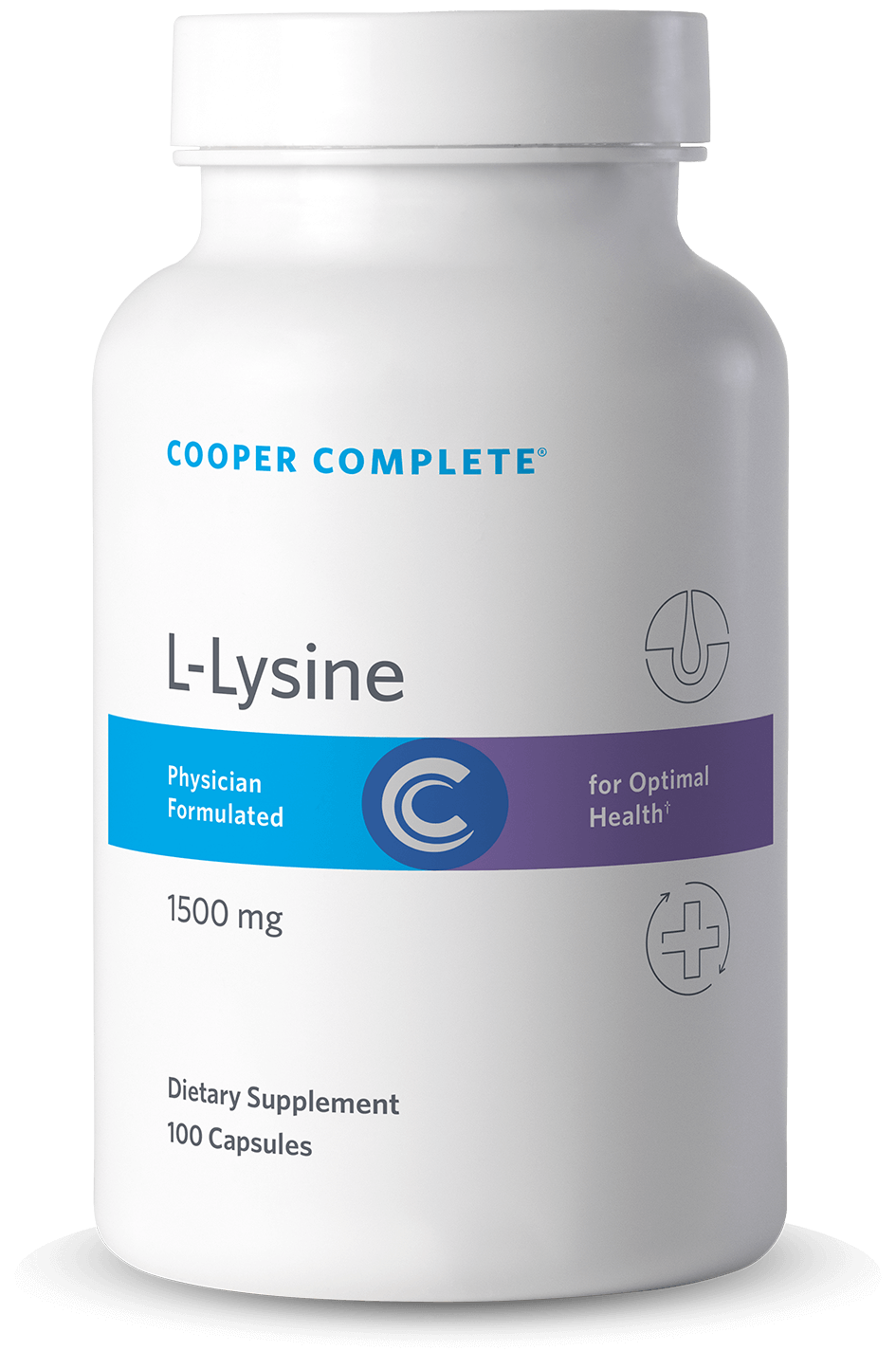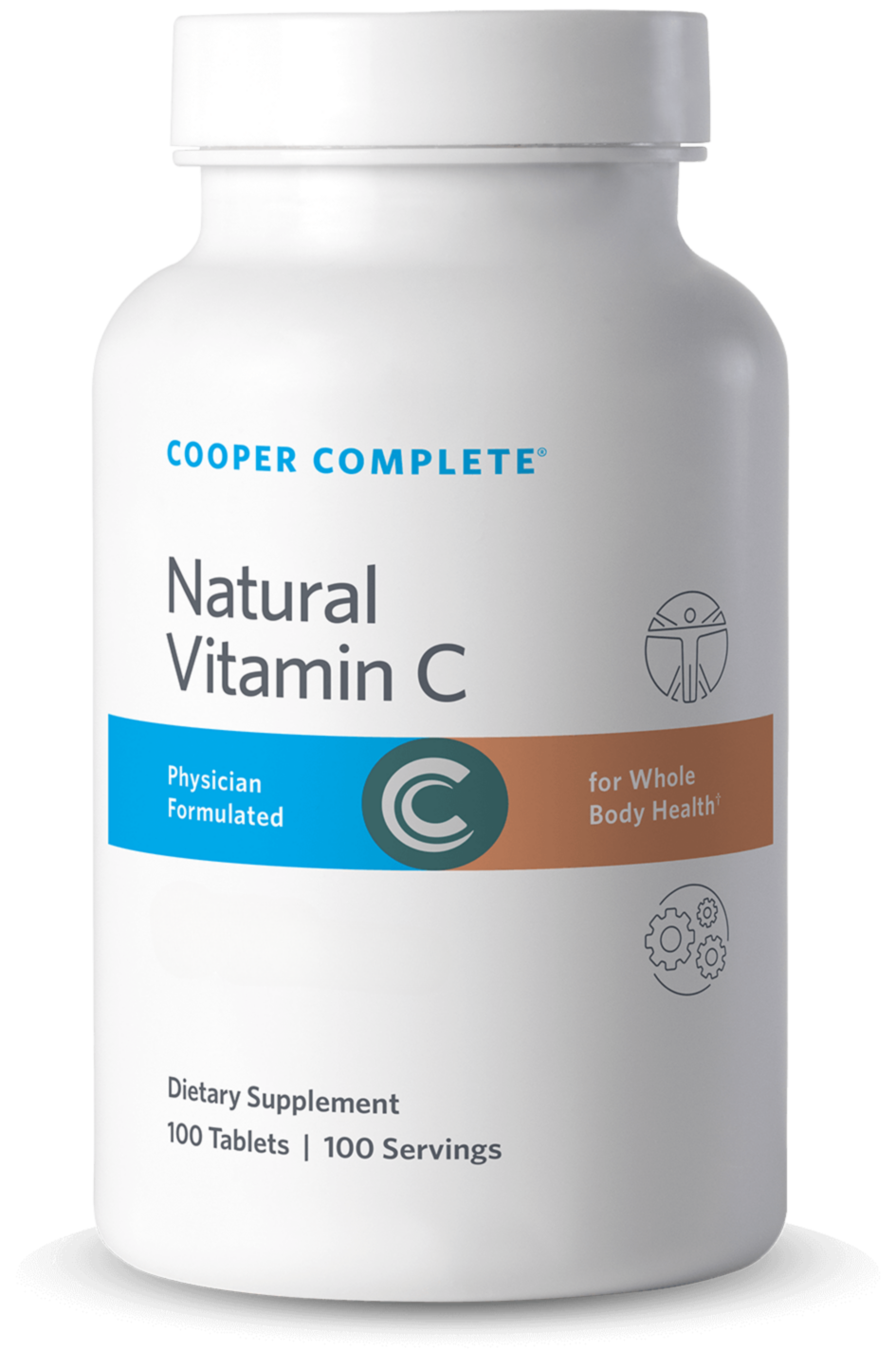Learn About 5 Health Benefits of Lysine and Vitamin C

Lysine, also called L-lysine, is one of the nine essential amino acids and a building block of protein. However, your body cannot make lysine; it must obtain it from foods or supplements. The best food sources of lysine are animal protein and dairy products, but legumes, nuts, and tofu also contain lysine. The health benefits of lysine include aiding in calcium absorption, collagen formation, building muscle protein, recovering from surgery, and reducing anxiety.
Researchers have studied the impact of lysine on various conditions, including stress, strength enhancement, cold sores, and more. Most studies involving lysine have been small, but here is some promising research and five health benefits of lysine and vitamin C.
1. Prevents or Treats Cold Sores
Cold sore or fever blisters often appear on the lip or corners of your mouth. Not only can they cause pain or burning, but they may also make you self-conscious about your appearance.

L-Lysine Supplement 1500 mg (1.5 g)
Cooper Complete® L-Lysine Supplement 1500 contains 1.5 grams of lysine to support connective tissue, collagen production, and gum and skin health.†
$22.98 Add to cartThe Herpes simplex virus (HSV-1) causes these sores. Infections are common, with an estimated 90 percent of American adults exposed to HSV-1. HSV-1 is the leading cause of herpes infections on the lips and mouth. In some people, the virus is dormant, while others suffer from repeated flare-ups. Some studies suggest that regular use of lysine can help prevent flare-ups of cold sores and herpes. Others showed no benefit, possibly due to the amount of lysine administered daily in each study.
In a double-blind, placebo-controlled study of 52 participants with a history of HSV-1 flare-ups, the treatment group received 3000 milligrams (mg) of lysine daily for six months. Compared to the control group, the treatment group experienced an average of 2.4 fewer HSV-1 flare-ups than the placebo group. Also, the Lysine group’s flare-ups were significantly less severe and healed more quickly. While this study used 3000 mg of lysine per day, in general, the studies that had subjects take a minimum of 1000 mg per day had positive results.
Aphthous ulcers, or canker sores, are painful open sores in the mouth. Causes of mouth ulcers include a viral infection, stress, hormonal changes, or food allergies. About 10 percent of our population regularly suffers from canker sores, and women seem to have them more often than men. A small study suggests that 500 mg of Lysine daily works well for ulcer prevention, with 1000 mg daily used for treatment.
Individuals who suffer from canker sores or herpes outbreaks may find the supplement lysine helpful in managing their condition.
2. Reduces Anxiety
The Anxiety and Depression Association of America reports anxiety affects over 40 million adults. This makes it the most common mental illness in the US. Research shows that one of the health benefits of lysine may be to help reduce stress hormone cortisol levels and feelings of anxiety. A small study found supplementing with 2.64 grams (2640 mg) of lysine and L-arginine, another amino acid, lowered stress-induced anxiety and reduced cortisol levels. This was true for those experiencing chronic stress-induced anxiety and those with trait anxiety. Lysine may also improve digestive problems, such as diarrhea, triggered by stress.
A deficiency of lysine interferes with the regular release of serotonin, increasing stress-induced anxiety. Serotonin regulates sleep, appetite, and mood. Low levels of serotonin are associated with depression.

Natural Vitamin C Supplement
Natural Vitamin C Supplement contains 850 mg of vitamin C (as calcium and magnesium ascorbates), plus citrus bioflavonoids to support cells, immune health, and healing.†
$29.98 Add to cartVitamin C is well known for immune health, but did you know it plays a role in anxiety, stress, fatigue, and mood? A small study of 42 high school students showed that students who received 500 mg/day of vitamin C had reduced anxiety. In addition, several studies showed that vitamin C supplementation has an antidepressant effect and improves mood.
3. Improves Calcium Absorption and Retention
We know that calcium deficiency contributes to bone loss as we age. The health benefits of lysine go beyond protecting our bones by helping control where calcium is transported in the body. Supplementing lysine with calcium appears to enhance calcium absorption in the intestine and reduce the amount of calcium lost in the urine. Studies in rats have shown that lysine prevents arteries from calcifying. However, further studies are needed before recommending lysine to prevent blocked arteries.
As you may have guessed by seeing calcium-fortified orange juice, vitamin C helps increase calcium absorption. And its’ role in producing collagen makes it essential to repair and maintain your bones. A 2019 study showed Vitamin C could inhibit osteoporosis by promoting osteoblast (bone-forming cells) formation. This suggests vitamin C improves bone regeneration.
4. Creates Collagen to Help Heal Wounds
Whether trying to heal a surgical wound or experiencing poor healing due to other health issues like diabetes, lysine with vitamin C can help. Lysine is required for collagen formation and helps support skin and bones. In animal studies, lysine has been shown to be more active at the wound site and speeds up the repair process.
Wound healing is complex and also requires various vitamins. Vitamin C is essential for the synthesis of collagen and wound healing. Iron deficiency also leads to decreased collagen production, which can delay healing. Vitamin C enhances iron absorption.
5. Increases Muscle Mass
Muscle loss begins to decrease as early as age 30, with a 3-5% loss each decade, but that doesn’t mean you can’t take steps to prevent it. A challenging resistance training program can help, as does getting enough protein. Lysine promotes muscle fiber enlargement by increasing protein synthesis. It also activates satellite cells, the precursors to muscle cells.
Did you know muscle contains two-thirds of our body’s vitamin C? Vitamin C helps make carnitine, a substance that processes dietary fat and provides energy for muscles to function. Additionally, vitamin C’s antioxidant properties help oppose free radicals. Left unopposed, these free radicals can contribute to the destruction of muscle.
Data analyzed from over 13000 European men and women found that the more dietary vitamin C middle-aged and older adults consumed, the greater their muscle mass. With only 6% of US adults meeting fruit and vegetable daily intake recommendations, supplementing with vitamin C may be necessary.
Due to the functions lysine supports in the body, researchers are exploring additional health benefits of lysine. Current research includes studying lysine’s effects on blood pressure, diabetes, and cancer cell growth.
While the body needs lysine, high doses have caused gallstones and elevated cholesterol levels in animal studies. You should talk with your physician before taking lysine supplements if you have high cholesterol, heart disease, or high triglycerides.
